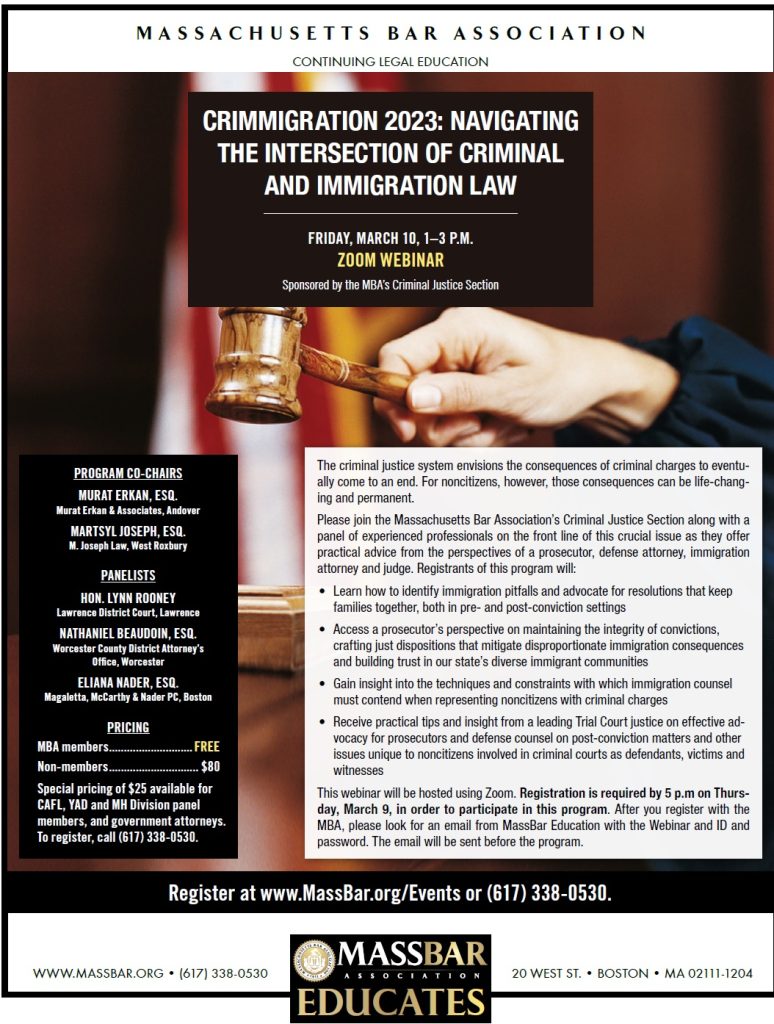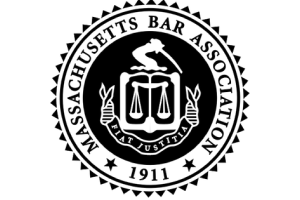Post-Conviction Litigation

Second Chances for the Wrongfully Convicted.
What do you do if you are an innocent person convicted of a crime? Where do you turn when you realize that your prior attorney did not act in your best interest? Can anything be done if you learn that your criminal case from years ago carries an unforeseen but devastating consequence like deportation? How can you tell if any of the recent government scandals like the drug lab and breathalyzer test scandals have affected your case? The attorneys at Erkan & Sullivan, PC can help you navigate these frequently confusing waters, and vindicate your rights with a motion for post-conviction relief in the trial court.
Unforeseen immigration issues.
For non-citizens, a surprising array of even minor charges carry the additional consequence of deportation. If you are a non-citizen who has been arrested, many dispositions of your case can result in deportation, exclusion from admission to the United States, and denial of naturalization. If those consequences are triggered, adverse immigration action is practically inevitable, and the law provides virtually no avenue for relief.
For many non-citizens, these immigration consequences are far more important than any jail sentence or term of probation. If you haven’t been back to your country of birth in years, if you grew up as an American in the United States despite your lack of citizenship, if your spouse and children live here, immigration concerns are likely paramount.
Because of their importance, attorneys have an absolute duty to inform a client of the immigration consequences of his or her case, and actively seek to avoid those tragic consequences. Unfortunately, attorneys often fail to do so. The result is, many defendants follow their attorneys’ advice, accepting what sounds like a good deal to resolve their case – maybe probation on a first offense, for example – and unwittingly volunteer themselves for disastrous immigration consequences. Worse, many lawyers who provide shoddy advice in this area are reluctant to admit it, introducing further obstacles on the road to second chances.
Similarly, a judge accepting your guilty plea has a duty, imposed by state law, to properly warn all defendants of the potential for immigration consequences. If the judge failed to do so, state law provides that the court must vacate your conviction.
It is difficult to envision a more devastating occurrence than suddenly finding out that you might be taken away from your home, your work, and your family because of an immigration consequence that was concealed from you.
– Ryan Sullivan
If your lawyer failed to tell you about the immigration consequences of your case before you pleaded guilty, or if the judge failed to warn you of the possible immigration consequences of your guilty plea, the consequences can be tragic. It is difficult to envision a more devastating occurrence than suddenly finding out that you might be taken away from your home, your work, and your family because of an immigration consequence that was concealed from you. The attorneys at Erkan & Sullivan, PC can help. While many lawyers may dabble in post-conviction motions, our office has developed a system of tackling these cases which rises to the level of an art form. Our office is a recognized leader in terms of vacating prior convictions, boasting an unrivaled success rate of over 95%.
Recognized Leaders.

Our success flows from a number of factors. Our comprehensive understanding of the criminal immigration laws and various precedents at the state and federal level, our passion for helping keep families together, and our unique, tailored, approach to each individual client’s particular story allow us to present compelling cases which lead to astonishing results. We are the foremost experts in this field, and have chaired educational programs on behalf of the Massachusetts Bar Association for attorneys across the state to learn our techniques in giving people second chances.
Egregious misconduct uncovered.
Drug lab scandals.
When police arrest a person for a drug offense, they send the suspected drugs to the crime lab. There, chemists test and weigh the drugs, determining the weight and chemical composition of the substance. Only then can the court be sure that the substance a defendant possessed was, in fact, illegal narcotics. These labs have strict protocols in place to maintain the integrity of the criminal justice system. At least, that’s how it’s supposed to work.
From 2004 until 2012, Annie Dookhan worked at the Hinton State Laboratory Institute in Jamaica Plain. During that time, she intentionally breached the procedures the lab had in place. She falsified equipment maintenance records, she forged her co-workers signatures on documents, claiming that samples tested positive as drugs when she never actually tested them, and when samples would test negative for illegal narcotics, she would add narcotics to them, ensuring the defendant’s conviction. She did this purposefully in a misguided endeavor to fight as a loyal soldier in the government’s ill-fated but persistent war on drugs.
Our office is a recognized leader in terms of vacating prior convictions, boasting an unrivalled success rate of over 95%.
– Murat Erkan
Supervisors at the drug lab turned a blind eye to warning signs of Dookhan’s misconduct for years. After her supervisors eventually relieved her from her drug testing duties, they permitted her to continue testifying against defendants in court. The laboratory and important government officials actively covered up the scandal. After the scandal became public, the Commonwealth attempted to minimize the number of affected cases, then devoted vast resources to resisting the outcry for dismissal of all cases with which Dookhan was involved.
In January of 2017, the Massachusetts Supreme Judicial Court ordered the Commonwealth to identify the cases which the Commonwealth declined to dismiss, and show cause why the cases should not be dismissed. In April of 2017, the Commonwealth finally dismissed over 20,000 cases.
After Dookhan’s misconduct became public in 2014, the public expected stricter management and tighter control of the Commonwealth’s drug labs. However, scandal hit yet again in 2016, when drug lab chemist Sonja Farak admitted that since 2004, she had been consistently under the influence of drugs while discharging her testing duties. Even more shocking, Farak didn’t get her supply from the street, but instead, from the samples police would submit to the lab and the “standards” the lab kept for comparison. On top of using methamphetamine and manufacturing her own crack from the lab’s cocaine WHILE AT WORK, she falsified the lab’s records in order to hide her misconduct. Consequently, the Commonwealth ordered thousands of cases potentially tainted by Farak’s misdeeds dismissed.
What these scandals reveal is that the Government should never be assumed to be beyond reproach. Consider the fact that after the Dookhan incident shattered the public trust in the drug lab, the government turned to the same playbook of minimization and obfuscation when the Farak allegations surfaced. And one would expect that the Dookhan and Farak scandals would have served as a powerful deterrent to government cover-ups. But consider the current headlines with respect to the office of alcohol testing. In the wake of recent questions as to the accuracy of Massachusetts breathalyzer testing devices, the head of the office of alcohol testing was recently fired for knowingly hiding evidence which undermined the validity of breath tests in potentially thousands of cases. Read the September 1, 2017 article here. This cluster of incidents reveals the Government’s tendency toward wrongdoing. More disturbingly, these cases reveal the Government’s almost instinctual reflex to conspire to cover up its misdeeds.
Attorney Erkan Unearths Misleading Information in Breath Test Forms
In 2012, Attorney Erkan discovered that the Methuen Police Department was utilizing a form which profoundly misled Hispanic arrestees in drunk driving cases. Years after exposing this wrongdoing, Attorney Erkan uncovered evidence that the Methuen Police knowingly continued to proliferate their misleading form, despite its knowledge that the form illegally coerced arrestees into incriminating themselves. Attorney Erkan’s discoveries prompted a class action federal lawsuit in the United States District Court. See the Eagle Tribune and Boston Globe coverage of this story here. Read the federal lawsuit here.
Attorney Erkan Exposes State-Wide Breathalyzer Scandal
In 2022, Attorney Erkan filed a motion for new trial in a case where the Government hid information that the Massachusetts State Police Crime Laboratory and Office of Alcohol Testing failed to properly calibrate breathalyzer devices across the state, then hid evidence of their wrongdoing from the accused and the courts. He ultimately presented the case to the Massachusetts Supreme Judicial Court, which agreed that the Government engaged in an egregious coverup. As a result, the Court ruled that some 29,000 individuals were entitled to seek new trials in their DUI cases. Click here and here to read our briefing.
The Calibration Scandal
According to the case that Attorney Erkan filed, the OAT, tasked with ensuring the reliability of breathalyzer machines, consistently failed to follow scientific protocols for calibration between June 2011 and September 14, 2014. In fact, OAT had no written protocols at all – leading to predictably unreliable breath test results
Concealment of Failed Calibrations
OAT’s misconduct extended beyond scientific inadequacies to deliberate suppression of evidence. It concealed over 490 calibration worksheets, many of which documented failed calibrations, leading to a staggering failure rate of approximately 20%—far higher than the less-than-1% rate OAT originally disclosed. These withheld worksheets were critical exculpatory evidence that undermined the validity of thousands of OUI prosecutions.
An investigation uncovered a deeply entrenched culture of noncompliance at OAT. The agency systematically avoided court-ordered discovery obligations, withheld documents from prosecutors, and even manipulated discovery processes to obscure the full extent of its failings. Prosecutors, seemingly unaware of OAT’s omissions, perpetuated the use of unreliable evidence in court.
Impact on Justice
Ms. Hallinan’s case epitomized the human cost of this systemic failure. Arrested in 2013 and faced with a breath test result of 0.23—nearly triple the legal limit—she had little choice but to tender a plea, as Massachusetts law at the time presumed the reliability of such evidence. However, her plea was based on the flawed and concealed practices of OAT, which withheld evidence that could have challenged the validity of her breath test and, by extension, the prosecution’s case. But because Ms. Hallinan was willing to fight back, and because she turned to us for help, some 29,000 individuals are entitled to seek new trials and get the second chance they deserve.
Holding Them Accountable
If you suspect your case may be affected by some level of governmental misconduct, please contact us. We will shine a light on any Governmental misdeeds which may have infected your case. We will hold those bad actors accountable and pursue the justice you deserve. Give us a call at (978) 474-0054 or contact us here.





